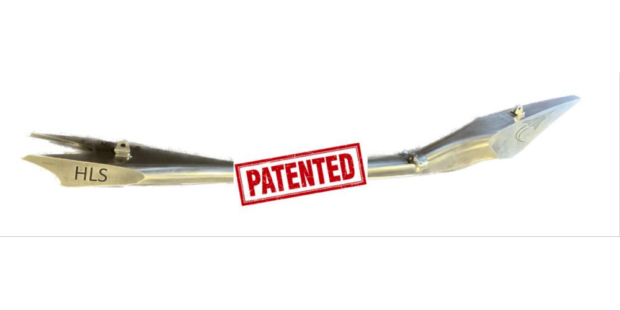Hypersonix has been awarded a US patent for technology used in its SPARTAN scramjet design. US Patent Number US11639700B2 protects for close to 20 years some key features of an “Airframe integrated scramjet with fixed geometry and shape transition for hypersonic operation over a large Mach number range”.
The air breathing and self-igniting scramjet engine invented by one of Hypersonix’s co-founders, Michael Smart, is able to accelerate between Mach 5 and Mach 12, depending on the selection of materials and manufacturing process chosen. This patent grows Hypersonix’s portfolio of patents to three, the other two being Australian innovation patents. Other features will also be covered as work progresses on our family of Unmanned Aerial Vehicles.
Hypersonix’s unique design is fuelled by hydrogen, which has a higher ISP than other fuels used in Aerospace such as RP1 Kerosene. Apart from the Zero CO2 emissions non-polluting to the Earth’s atmosphere, clean burning hydrogen allows the engine to switch on and off several times during the flight, enabling a non-ballistic trajectory that cannot be achieved with conventional rockets, and also offers a longer range than other scramjets.
SPARTAN’s fixed geometry is another unique feature which lends itself to rapid advanced manufacturing techniques. The first SPARTAN prototype was 3D printed in high temperature alloy material in December 2021 as part of an Accelerating Commercialisation Australia (ACA) grant awarded to Hypersonix.
Hypersonix also recently announced the completion of a manufacturing demonstrator using ceramic matrix composite (CMC) material for the SPARTAN engine which will allow the engine to withstand the higher temperatures expected at its top speed of Mach 12.
High cadence flight and reusability are important aspects of the Hypersonix strategy. Hydrogen fuel is making this a reality as it burns cleanly, unlike other fuels such as Kerosene that leave residue, making it difficult to reuse quickly if at all. Whilst reusability is not a priority for other scramjet-powered hypersonic systems, it is a cornerstone of the Hypersonix product strategy.
Hypersonix’s ambition is to provide commercial solutions to the market for access to space and high-speed travel. Along the way Hypersonix has capitalised on the significant interest shown by Defence circles for the DART AE demonstrator flight vehicle in providing an advanced hypersonic test platform for collecting valuable data at hypersonic speeds.
Thanks to the SPARTAN design and the advanced manufacturing techniques and materials it uses, Hypersonix was selected for the Hypersonic & High-Cadence Airborne Test program (HyCAT), a solicitation by the Defense Innovation Unit in the US, part of the US Department of Defense (DoD) to deliver the DART AE flight vehicle.
Whilst working with Defence as the first customer for Hypersonix, the company will pursue their commercial vision to apply their scramjet technology to develop a low cost and high cadence access to space solution for small satellites using green hydrogen, and in the longer term a hyperliner that may transport cargo and passengers from Sydney to New York City in just a few hours.
David Waterhouse, Managing Director, Hypersonix added:
“We are grateful for the DIU’s confidence in Hypersonix as our first customer so early in our history. Many technologies have found their first success in the Defence market before getting applied in the commercial world. And if there is one way for Hypersonix to grow the team faster in the current environment, the answer has to be to provide US Defence with unique capabilities.”
Michael Smart said:
“We are thrilled to have our original ideas recognised by a US patent for our SPARTAN scramjet design. Our team has already integrated my inventions and fresh ideas into various additional features that cement our technological leadership in hypersonic propulsion and flight.”
Source: Press Release


